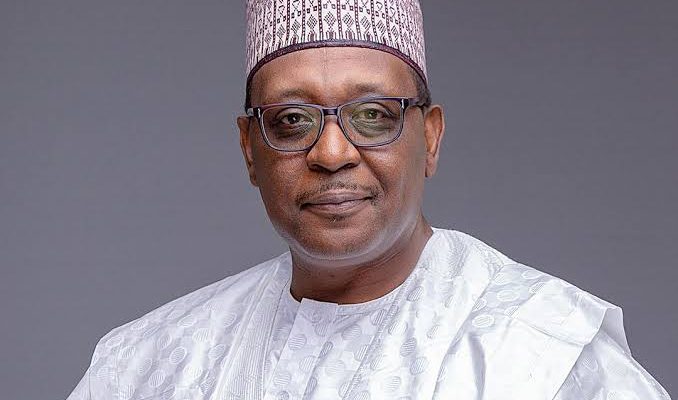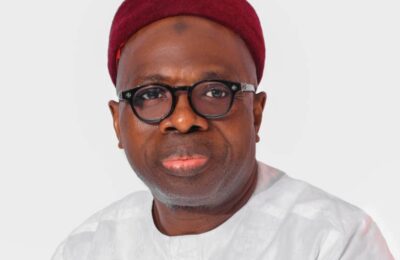The Federal Government has applauded the United States government and other partners for investing about 900 billion dollars in Nigeria’s malaria, HIV/AIDS and tuberculosis programmes.
The Coordinating Minister of Health and Social Welfare, Prof. Ali Pate, made the commendation in Abuja when he received Dr John Nkengasong, the U.S. Global AIDS Coordinator and Special Representative for Global Health Diplomacy, the United States President’s Emergency Plan for AIDS Relief (PEPFAR).
Also among the delegation was Mr Peter Sands, Executive Director, the Global Fund to Fight AIDS, Tuberculosis and Malaria and Dr David Walton, U.S. Global Malaria Coordinator for the U.S. President’s Malaria Initiative.

According to Pate, the US government support which is about 900 million dollars over the years is already a significant amount of support.
Pate said: “We appreciate the generosity of the American people and American government and other governments that contribute to the global fund because the global fund comprises seven countries, not only the United States government.
“The visit symbolises the significance that the delegation places on the health and wellbeing of Nigerians and on Nigeria’s positioning in the global effort to improve people’s health,” he said.
Pate noted that financing and technical capability were not the only challenges the nation’s health sector faced, though financing was very important.

He also said that overall governance was very important and that the ministry would support the vision of President Ahmed Tinubu to ensure the health sector is better covered.
“Which means that to govern health better, we have to look at the intergovernmental aspects as well as what we do as a Federal Government.
“We have to do it with our development partners like yourself and others who are going to come after to serve Nigerians, to improve their health and wellbeing and have good data to tell the story of where we are going.
“To hold ourselves accountable and also hold you accountable, even as the source countries also called institutions accountable. That’s the pillar of governance.”
He added that to strengthen the platform for delivery of health services, the nation has to retrain and update standards of practice for its frontline health workers.
Also, the US Global Malaria Coordinator for the US President’s Malaria Initiative, Dr David Walton commended Nigeria on the progress that has been made in healthcare deliverables, especially ensuring that Nigerians were protected during the COVID-19 pandemic.
He added that the global fund was proud to be a partner with Nigeria and the fund has a lot at stake.
“Nigeria is the country that receives more global fund investments than any other country in the world so your success is our success, we are completely united with you in the objective of saving lives, improving the health systems, improving health and wellbeing for people all across this country.
“This visit is a very deliberate effort to ensure we are coordinated in supporting you and particularly at this really important moment where we have a new government, new president, new leadership in the Ministry of Health.
“We want to be aligned in the way we put our resources and capabilities behind the government. We are delighted to engage in these discussions, but we should see this as just a first step of ongoing dialogue.
“However, it is also about action because ultimately it’s the actions that counts and that is what will save people’s lives and improve people’s health.”
Also at the event, the 2022 Nigeria Malaria Report was inaugurated.
The World Health Organisation’s (WHO) Regional Director for Africa, Dr Matshidiso Moeti, acknowledged the commitment of the Global Fund and the US Government through PEPFAR and the President’s Malaria Initiative, which continue to support disease elimination efforts in the African region.
She said that as one of the region’s largest and most economically important countries, Nigeria has a major role in tackling disease prevention and control among its population.
She, however, said that Nigeria has made great strides in improving the health of its population and that the country made progress on HIV between 2015 and 2021, meeting two of the 95-95-95 goals, adding that tuberculosis intervention coverage is improving, with increasing case detection over the same period.
“The African Region carries a high proportion of the global malaria burden, accounting for about 95 per cent of all malaria cases and 96 per cent of all malaria deaths in 2021.
“While Nigeria accounts for around 27 per cent of the global burden of malaria cases, the country has seen major progress.
“Malaria incidence has fallen by 26 per cent since 2000, from 413 per 1000 to 302 per 1000 in 2021. Malaria deaths also fell by 55 per cent, from 2.1 per 1000 population to 0.9 per 1000 population.”
Moeti said that drivers of the continuing disease burden include the size of Nigeria’s population, making scaling up intervention challenging; suboptimal surveillance systems, which pick up less than 40 per cent of the country’s malaria data.
Also, inadequate funding to ensure universal interventions across all states and health seeking behaviour, where people use the private sector, with limited regulation, preferentially.
“Further, learning from COVID-19, we know that continuity of provision of essential health services is critical to interventions in malaria and other diseases, particularly in populations affected by humanitarian emergencies and changing environmental factors, such as climate change, and farming and mining practices that may increase transmission.
“Addressing the prevention, elimination, and control of malaria and the burden from other diseases requires critical data and information gathering for evidence-based investment and decision-making.”
According to her, the report on malaria in Nigeria 2022 is an excellent model from which to use data to prioritise health interventions.
She added that using data, Nigeria could prioritise and target interventions, optimise allocation of resources and facilitate the monitoring of performance at federal and state levels.
She also said that the report was a result of the collaboration between the Nigeria Malaria Elimination Programme, the WHO Regional Office for Africa, and the Global Malaria Programme.
It provides critical information on the status of malaria in each of the 36 States and the Federal Capital Territory of Nigeria, making it unique in providing data at the state level to guide a truly subnational response to malaria, providing an overview of the malaria situation across all states.
Also focusing on population demographics, malaria interventions, climate and disease burden.
“Going forward, the regional office must support the generation of the data and evidence required to develop similar reports on other diseases and conditions.
“This will enable countries to monitor interventions at national and sub-national level, to tailor the use of funds by donors and government in the control of communicable and non-communicable diseases.
“WHO will continue to play a central and connecting role in working with government, the global fund, PEPFAR, PMI and other partners in Nigeria, at national and state level, to optimise investments to reduce the burden of malaria and other diseases in the country.”
READ ALSO FROM NIGERIAN TRIBUNE







